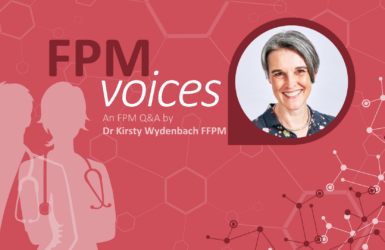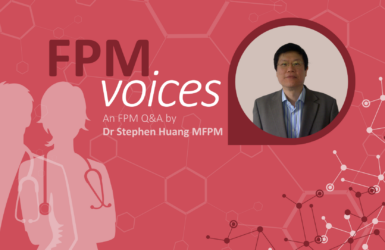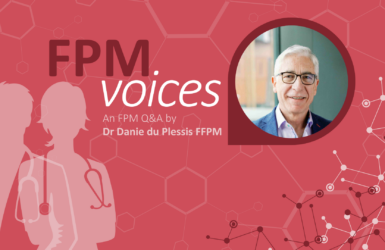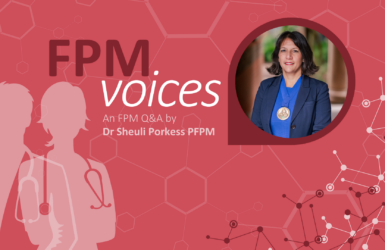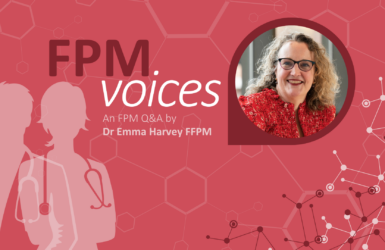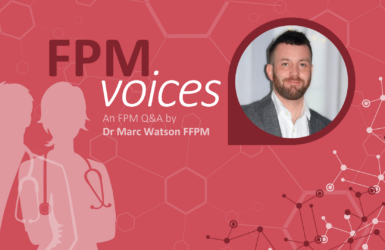Dr Kamlesh Sheth FFPM
An FPM Voices Q&A
Posted on: Wednesday 23 April 2025
Author: Dr Kamlesh Sheth
This Q&A has been prepared by Dr Kamlesh Sheth FFPM.
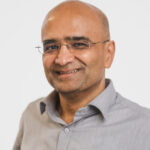
FPM Voices is a Q&A interview series that shines a spotlight on the careers and insights of senior and influential pharmaceutical physicians. Through these conversations, we aim to provide colleagues with a deeper understanding of the opportunities, challenges, and rewards of pharmaceutical medicine.
Each interview explores personal career journeys, key lessons learned, and the role that the Faculty of Pharmaceutical Medicine (FPM) has played in shaping professional growth.
What first sparked your interest in pharmaceutical medicine, and what has kept you passionate about the field?
My early career was in cardiothoracic surgery in the UK and USA, followed by academic research in the UK. The field was exceptionally rewarding; yet it was during this time that I began to question how scalable my impact was. Moving into pharmaceutical medicine allowed me to contribute not only to individual patient care but also to population level health outcomes.
What has kept me passionate is the ability to work across disciplines (science, policy, patient advocacy, commercial) and constantly learn from colleagues and patients alike. The field is dynamic, impactful and constantly evolving. It challenges you to be rigorous, pragmatic and compassionate. Throughout my career, I’ve been lucky to play a role in bringing treatments to patients who were once without hope.
What does FPM represent to you, both professionally and personally?
FPM has played a central role in shaping my professional journey. It represents a community of dedicated professionals committed to high standards, ethical practice and the advancement of science and public health all whilst keeping patients at the core.
Personally, FPM has given me the opportunity to give back over the years through various roles. Whether via a role on committees – Trainees Committee, SAC of Joint Royal Colleges of Physicians Training Board, Finance Committee, Board of Examiners, Quality Management Panel, special interest groups, or as an appraiser, and now as an Honorary Treasurer and Trustee, I’ve had the privilege of supporting the Faculty’s mission while connecting with brilliant peers. FPM is more than a professional body – it’s a shared home for those of us who want to use medicine to make systemic, sustainable change for our patients.
In what ways have you helped champion FPM’s mission for the next generation of pharmaceutical physicians?
Over the past two decades, I’ve worked in various roles, as mentioned above, that support FPM’s development of future talent. I have been fortunate enough to help the next generation of pharmaceutical physicians through the British Association of Pharmaceutical Physicians as well by serving as one of its officers. I have mentored colleagues at different career stages, offering guidance on training, exams, leadership, career and ethics.
Beyond formal roles, I’ve mentored a number of patient advocacy groups and junior physicians, helping them understand how their skills and passions can align with careers in pharmaceutical medicine. I believe in the importance of visible leadership, showing that there is a fulfilling, meaningful and rewarding path in pharmaceutical medicine.
What’s a recent innovation or lesson—whether from colleagues, patients, or scientific advancements—that has inspired or changed your perspective?
One of the most powerful lessons I’ve learned is the value of co-creation with patient groups (not just consultation but genuine partnership). My work on the Alkaptonuria (AKU) clinical development programme was a turning point in that regard, and more recently, working closely with rare disease communities through Beacon has reinforced this.
The shift toward involving patients earlier, more transparently, and with greater decision-making power has been inspiring, and has led to better research, better uptake, and most importantly, better outcomes. It’s a model we should strive to apply more broadly across healthcare.
How would you describe what you do to people who haven’t heard of pharmaceutical medicine?
I usually say, “I work at the intersection of science, medicine, commerce and regulation to help develop and bring new treatments to patients.” I would also explain that pharmaceutical medicine involves ensuring that medicines are not only effective but also safe, accessible and developed with patients in mind. It’s a specialty that blends analytical thinking with ethical responsibility. Most people are surprised by how collaborative and multidisciplinary it is and how much clinical training underpins the work.
Can you share a collaboration that had a significant impact on your work, and what made it so successful?
One standout collaboration was between Sobi, the AKU Society, and the University of Liverpool to launch a clinical development programme for Alkaptonuria. What made it unique was the degree of trust, transparency and shared vision between all parties.
That experience reshaped how I approach stakeholder engagement and showed me how much stronger we are when we listen to patients not just as participants, but as partners.
How has mentorship shaped your career, and how do you support and guide those entering pharmaceutical medicine?
Mentorship has been a crucial constant throughout my journey and I am a proud mentee and mentor.
Early in my career, I was fortunate to have mentors who encouraged me to think beyond the traditional boundaries of clinical practice. That encouragement gave me the confidence to pivot, take risks and eventually move into industry to make an even wider positive impact on patients and society than when I was a cardiothoracic surgeon.
Today, I actively mentor resident doctors, CEOs of patient advocacy groups and early-career pharmaceutical physicians. I aim to create space for open and honest conversations, offer strategic advice, and more importantly, be a sounding board. For many entering this field, it can feel unfamiliar so having someone who understands the landscape and experienced highs and lows can make all the difference.
What is one of the biggest misconceptions about pharmaceutical medicine, and how do you think we can change that perception?
One common misconception is that pharmaceutical medicine is detached from patient care. In reality, the opposite is true: everything we do is with patients in mind, often with greater reach than traditional clinical roles.
Changing that perception starts with education and visibility – more medical students and resident doctors need to hear from professionals in the field. FPM plays an important role here, but so do we as individuals. Sharing our stories, demystifying the industry and showing the impact of our work can help shift the narrative.
What is one key change or advancement you hope to see in pharmaceutical medicine in the coming years, and why?
I’d like to see more structured pathways into pharmaceutical medicine, especially from non-traditional backgrounds. There’s so much untapped talent – clinicians, scientists, technologists – who could bring fresh ideas and energy into our field. Creating clearer, more flexible entry points would broaden the talent pool and enrich the future of the specialty.
If your life had a theme song, what would it be?
I am a Bollywood fan so it has to be a Bollywood theme song – “Ruk jaana nahin tu kahin haarke…” (roughly translated as “Never Give Up”).
Ruk jaana nahin tu kahin haarke...
More from this series



